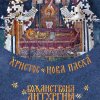Sidebar
Site Map
A great man is one who collects knowledge the way a bee collects honey and uses it to help people overcome the difficulties they endure - hunger, ignorance and disease!
- Nikola Tesla
Remember, remember always, that all of us, and you and I especially, are descended from immigrants and revolutionists.
- Franklin Roosevelt
While their territory has been devastated and their homes despoiled, the spirit of the Serbian people has not been broken.
- Woodrow Wilson
Branko Tomović
Branko Tomović (Serbian Cyrillic: Бранко Томовић; born June 17, 1980) is a Serbian-German actor. He was born in Münster, Germany, though his actual origin is from the Carpathians in Serbia. His parents emigrated in the 70's from the Golubac Fortress area on the Danube and Branko was raised between Germany and Serbia before he studied acting at the prestigious Lee Strasberg Theatre Institute in New York City. Tomović was first seen on the big screen in the lead role in the American Film Institute/Sundance drama Remote Control, for which he received the OmU-Award at the Potsdam Film Festival.
.Marija Karan
Karan was born in Belgrade. In 2007, Karan appeared alongside Nikola Kojo and Bogdan Diklić in the Serbian thriller Četvrti čovek (The fourth Man) by Dejan Zečević and alongside Branko Tomović in the British Drama Taximan by Henrik Norrthon.
.Sanja Beštić
Igor Simić
Igor Simic was born in 1988 in Belgrade, Serbia. He graduated from Columbia University, New York, with a double-major in Film Studies and Philosophy. He currently works on films, video, installations, and writes articles.
.Nemanja Bala
Branislav Bala
His short films have played worldwide. His short film Shades of Gray was distributed by Doug Liman’s Hypnotic Releasing, and his commercial spot Magic was a Coca-Cola Refreshing Filmmaker’s Award selection. He co-produced two low-budget features: Across Dot Avenue and Romeo and Juliet in Yiddish. The latter was invited for a week-long run at New York’s famous Lincoln Center and opened to rave reviews. He has taught various film classes at the University of Hartford, The New School, Art Institute of Austin, Ramapo College and was the chair of the Film Department at Katharine Gibbs School. He often collaborates with his brother Nemanja. Their latest collaboration, a feature film “Love Hunter” premiered at the prestigious Warsaw Film Festival and was “among its highlights”, according to The Hollywood Reporter.
.










